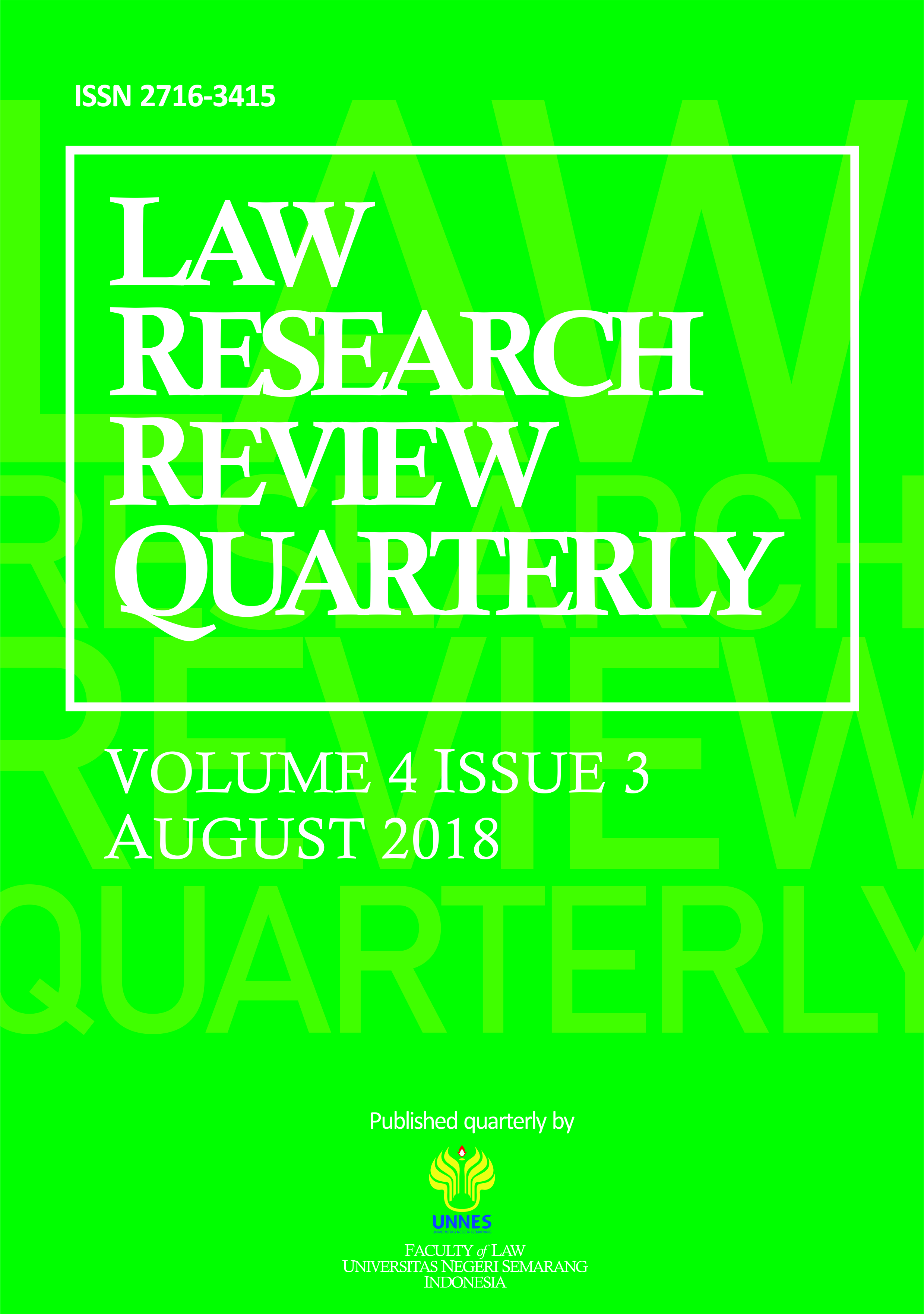Community Participation in Running Government and as Members of the House of Representatives through General Elections in Indonesia
Main Article Content
Abstract
Competition among political parties in large numbers causes the possibility of success to be smaller, hence coalition is the most rational choice. This situation resulted in the emergence of super tight contestation among coalition political parties. So that the main focus is to win the contestation with all efforts, and the intention to participate in the government and become a member of the House of Representatives even as if looking for work. The purpose of this paper is to provide an attitude and criticism of the community in this case who are incorporated in political parties about their role as representatives of the people in the government and as members of the House of Representatives obtained through general elections (elections). The writing method used is normative juridical by using the statutory approach and conceptual approach. The conclusion is that the community has the right to participate in running the Government as well as becoming a member of the House of Representatives through elections, but its rights must also be accompanied by a series of obligations that must be carried out with the main goal of public welfare in general, not the community members and groups. partisans of the political parties which are its aegis.
Article Details
All writings published in this journal are personal views of the authors and do not represent the views of this journal and the author's affiliated institutions. Author(s) are retain the copyrights of the Article. However, before publishing, it is required to obtain written confirmation from Author(s) in order to ensure the originality (Author Statement of Originality). The statement is to be signed by at least one of the authors who have obtained the assent of the co-author(s) where applicable.This work licensed under a Creative Commons Attribution-ShareAlike 4.0 International (CC BY-SA 4.0)
References
Andriadi, Fayakhun, (2016), Demokrasi Ditangan Netizen, Tantangan-tantangan Prospek Demokrasi Digital, Jakarta: RMBooks, Cet ke1.
Alfian, M Alfan, (2018), Rashomon Dalam Labirin Politik Indonesia, Jakarta: Penjuru Ilmu, Cet ke-1.
Asshiddiqie, Jimly, (2017), Pengantar Ilmu Hukum Tata Negara, Jakarta: RajaGrafindo Persada, Cet ke-9.
Daud Busroh, Abu, (2010), Ilmu Negara, Jakarta: Bumi Aksara, cet ke-7.
Maran, Rafael Raga, (2013), Pengantar Sosiologi Politik, Jakarta: Rineka Cipta, Cet ke-2.
Jurnal
S.T. Sihombing, Irvin, (2018), Reformulasi Demokrasi Internal Partai Politik: Sebuah Upaya Mencapai Negara Demokratis Yang Hakiki, Jurnal Pemilu dan Demokrasi, Jurnal Perludem, Vol. 11.
PeraturanPeundang-undangan
Republik Indonesia, Undang-undang Dasar 1945.
Republik Indonesia, Undang-undang Nomor 2 Tahun 2011 Tentang Perubahan Atas Undang-undang Nomor 2 Tahun 2008 Tentang Partai Politik, Lembaran Negara Republik Indonesia Tahun 2011 Nomor 8.
Republik Indonesia, Undang-undang Nomor 7 Tahun 2017 Tentang Pemilihan Umum , Lembaran Negara Republik Indonesia Tahun 2017.
Internet
Artikel Siana, Pengertian Partai Politik, Ciri, Fungsi, Tujuan dan Konsep, diunduh pada tanggal 2 November 2018 pikul 16.05 Waktu Indonesia Barat.
